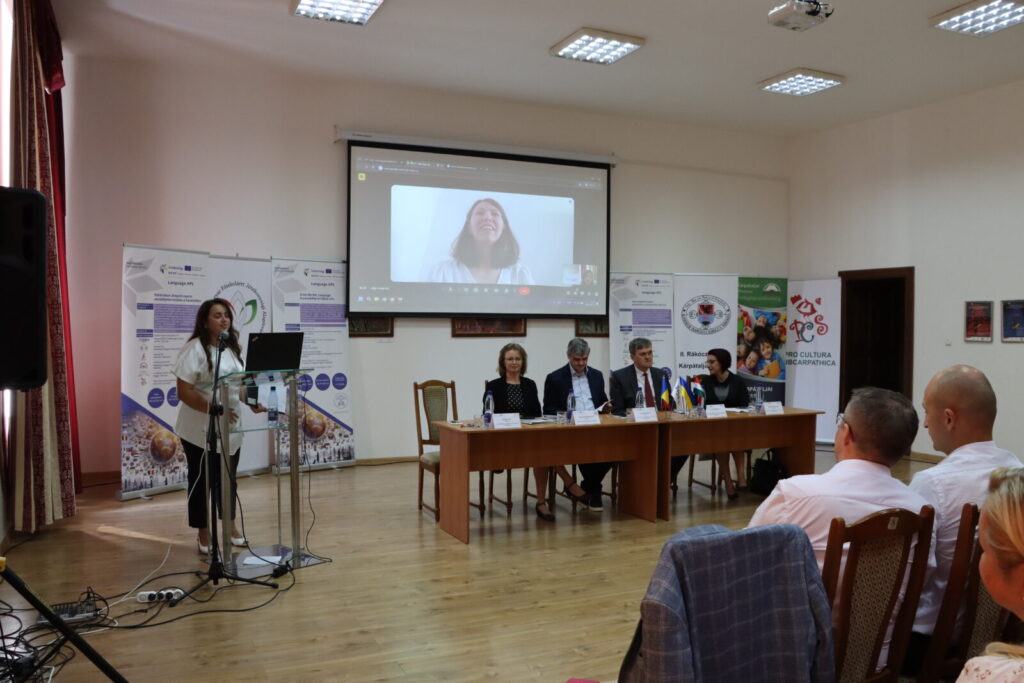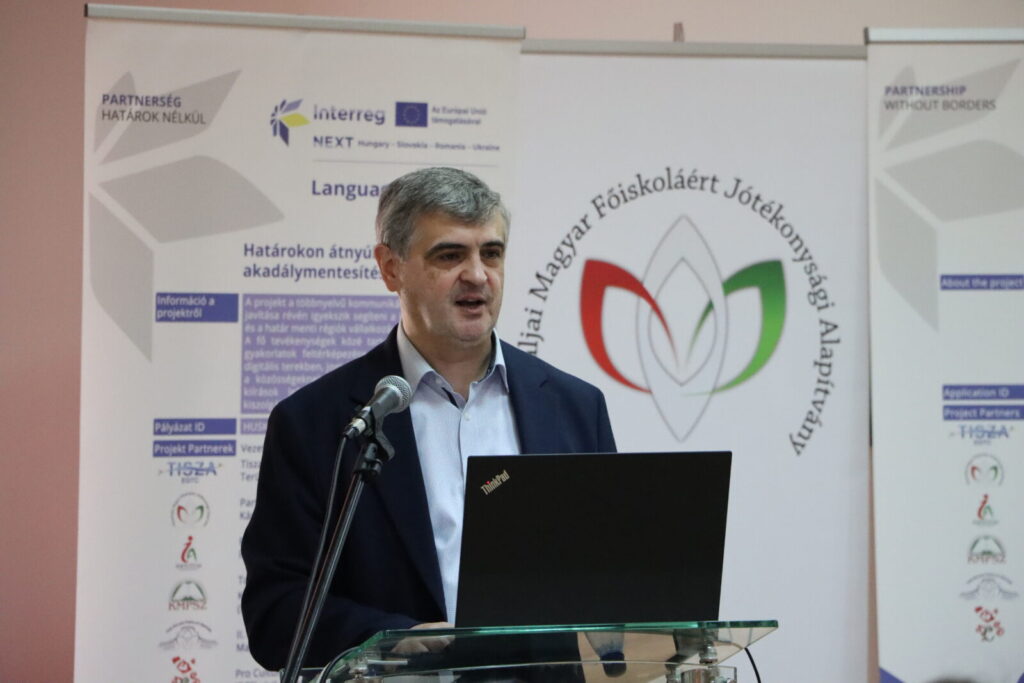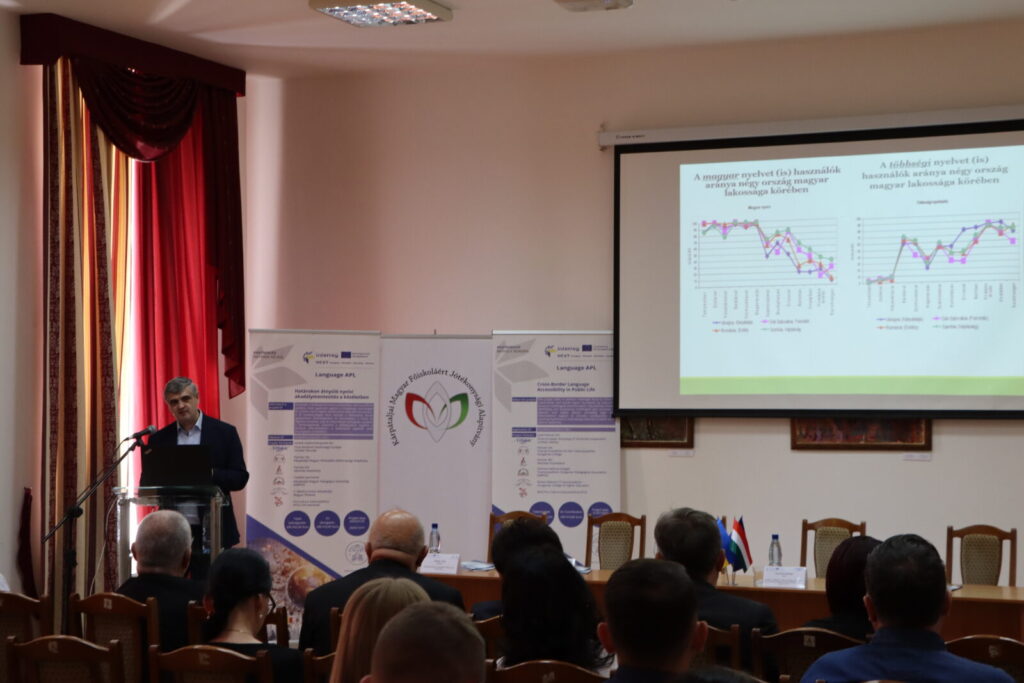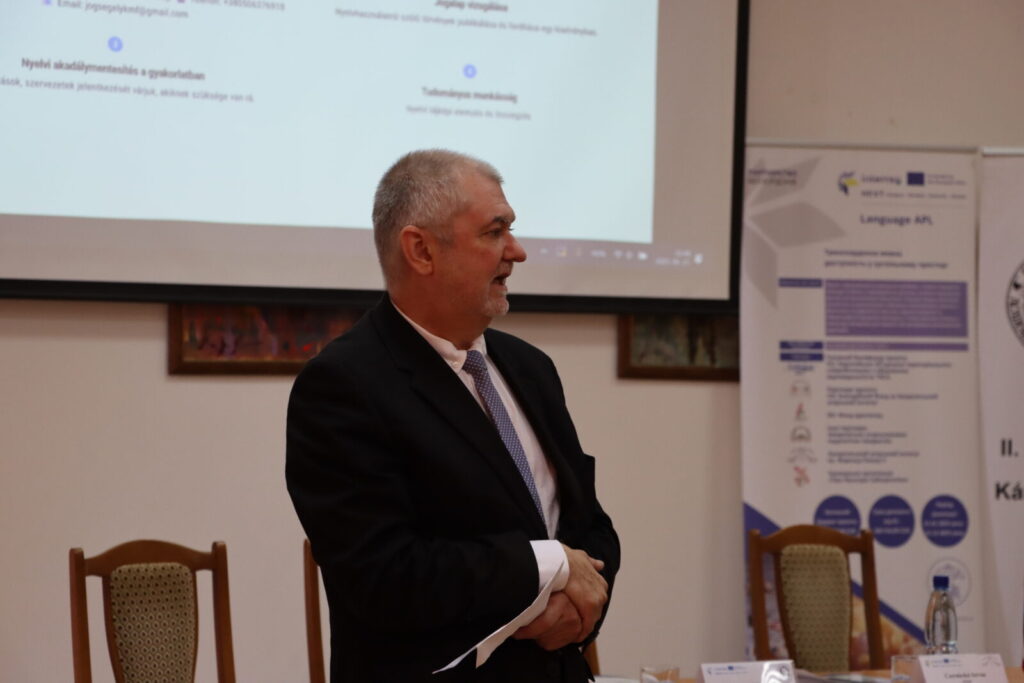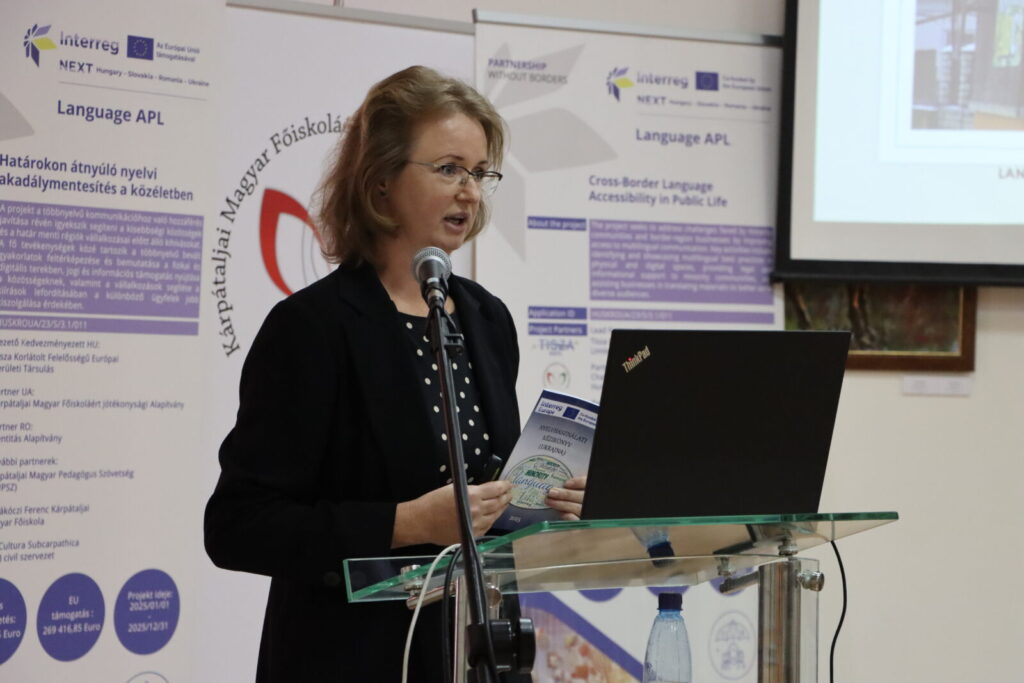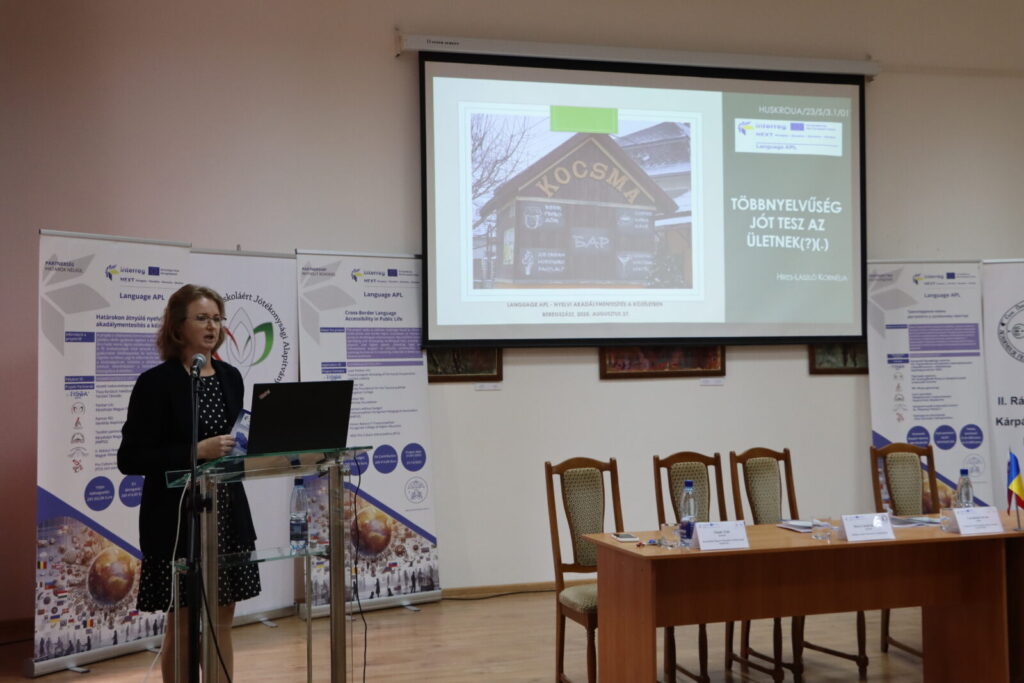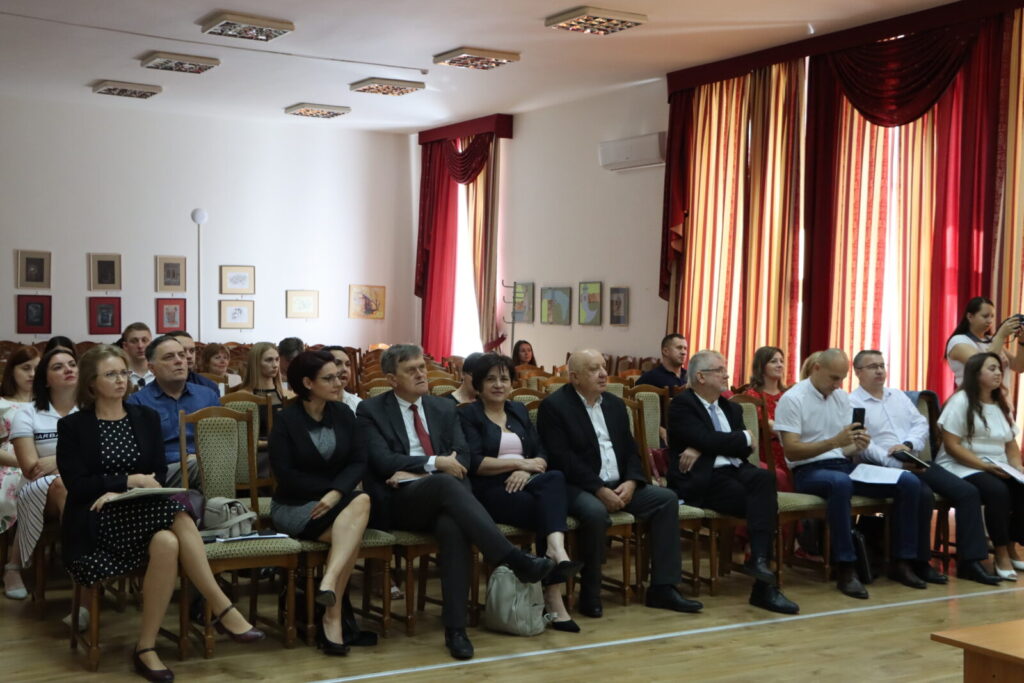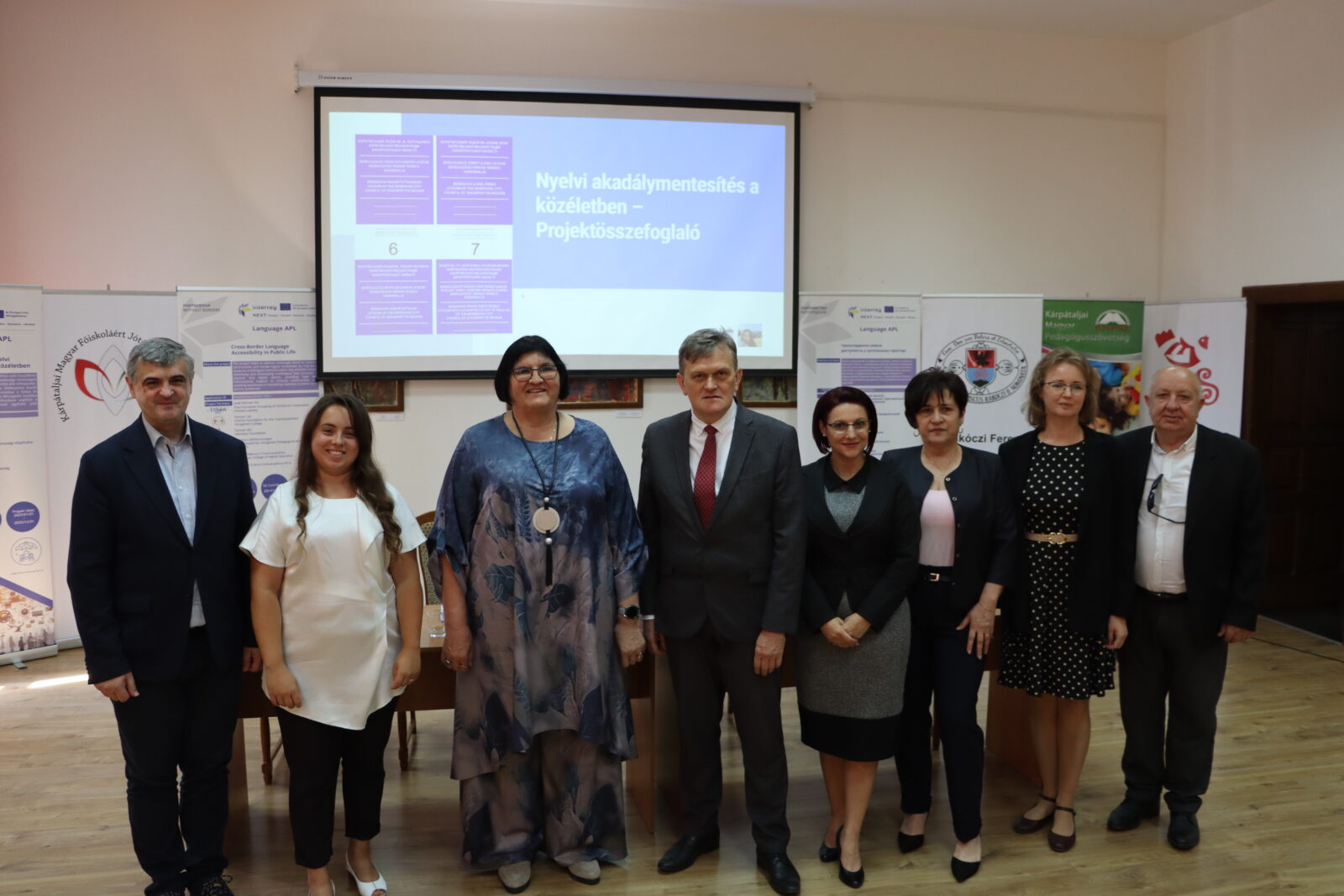On August 27, 2025, the Ferenc Rákóczi II Transcarpathian Hungarian College of Higher Education hosted an Open Day of the project Language APL – Cross-Border Language Accessibility in Public Life. The aim of the event was to present the project’s achievements to date and to discuss the practical implementation of multilingualism in cross-border regions.
The initiative is supported by the Interreg VI-A NEXT Hungary–Slovakia–Romania–Ukraine Programme 2021–2027. Its main goals are to promote the enforcement of minority language rights, strengthen multilingualism, and remove linguistic barriers in public life, education, and the economy.
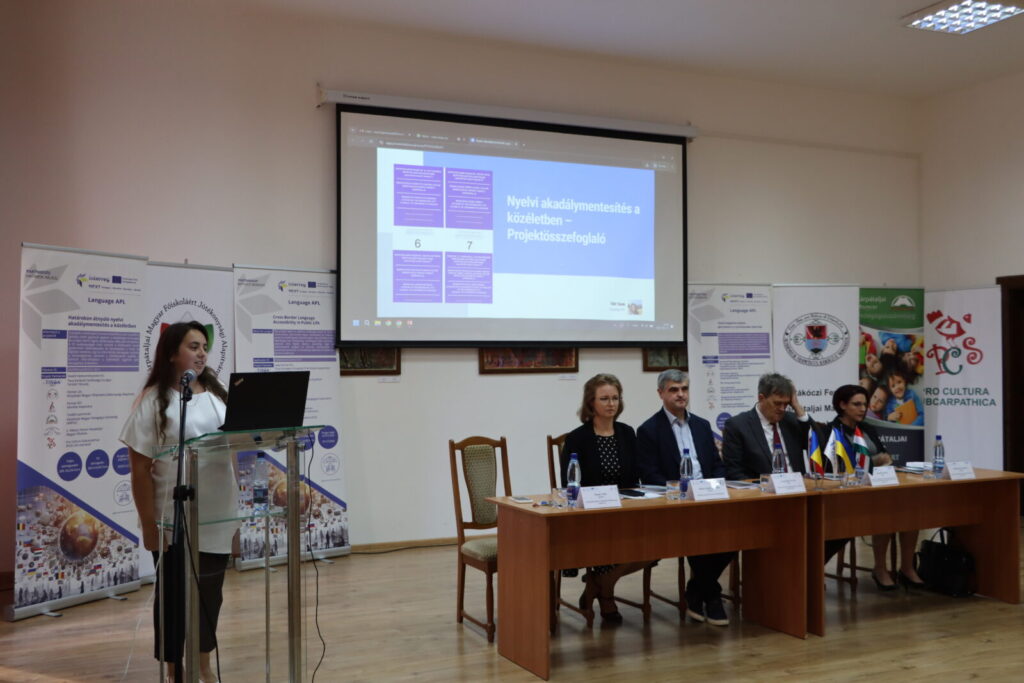
The participants were welcomed by Tünde Tóth, Director of the Foundation for the Transcarpathian Hungarian College, who highlighted:
“This project is not only about familiarising people with legislation but also about providing practical guidance to overcome everyday language barriers.”
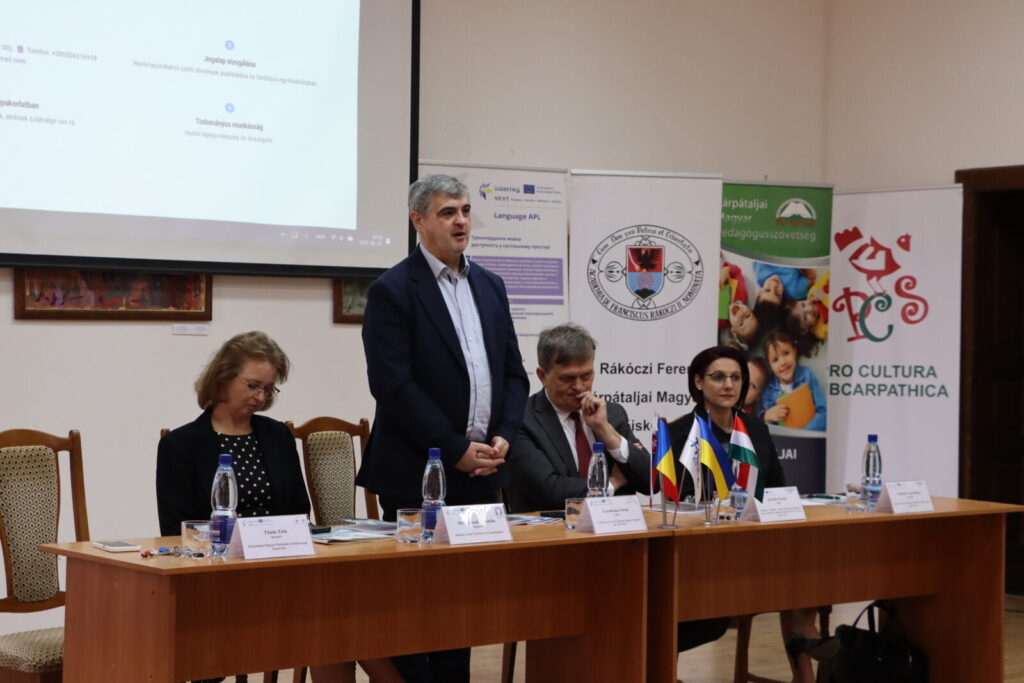
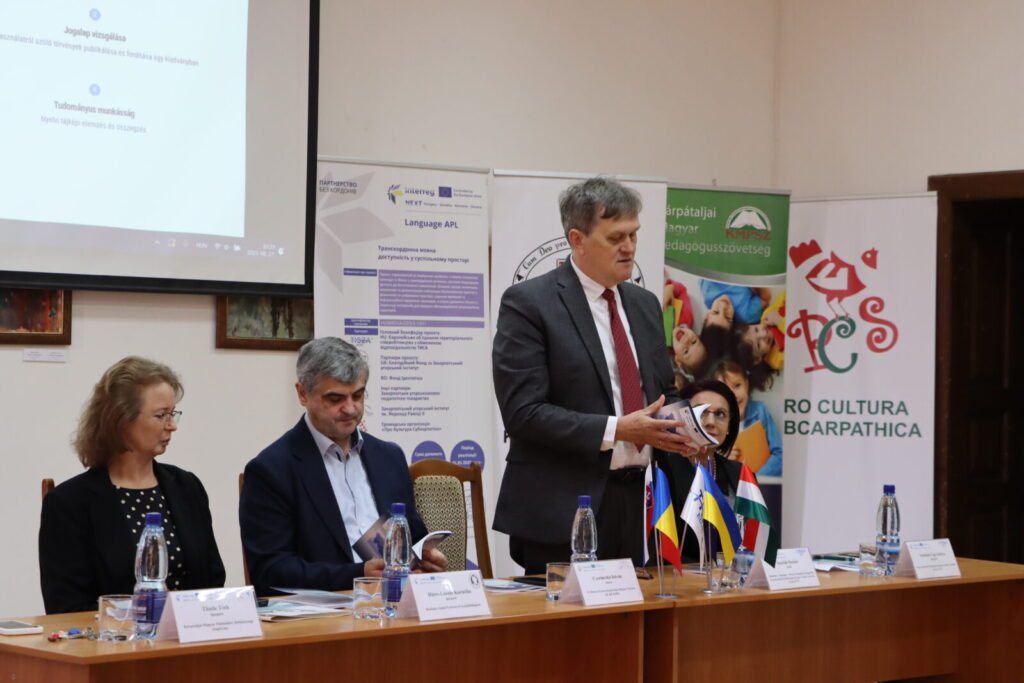
Greetings were also delivered by István Csernicskó, Rector of Rákóczi College and the project’s coordinator, as well as Oszkár Seszták, President of the General Assembly of Szabolcs-Szatmár-Bereg County. Professor Csernicskó emphasised that language accessibility is an integral part of democratic equality:
“Ensuring the use of minority languages is not a privilege but a right. This project contributes to making these rights a reality in everyday practice.”
The Transcarpathian research activities of the project are carried out by the Foundation for the Transcarpathian Hungarian College and the Antal Hodinka Research Centre for Linguistics . The Centre’s staff contribute by mapping and analysing language use situations, providing a clear picture of how minority language rights are applied in practice.
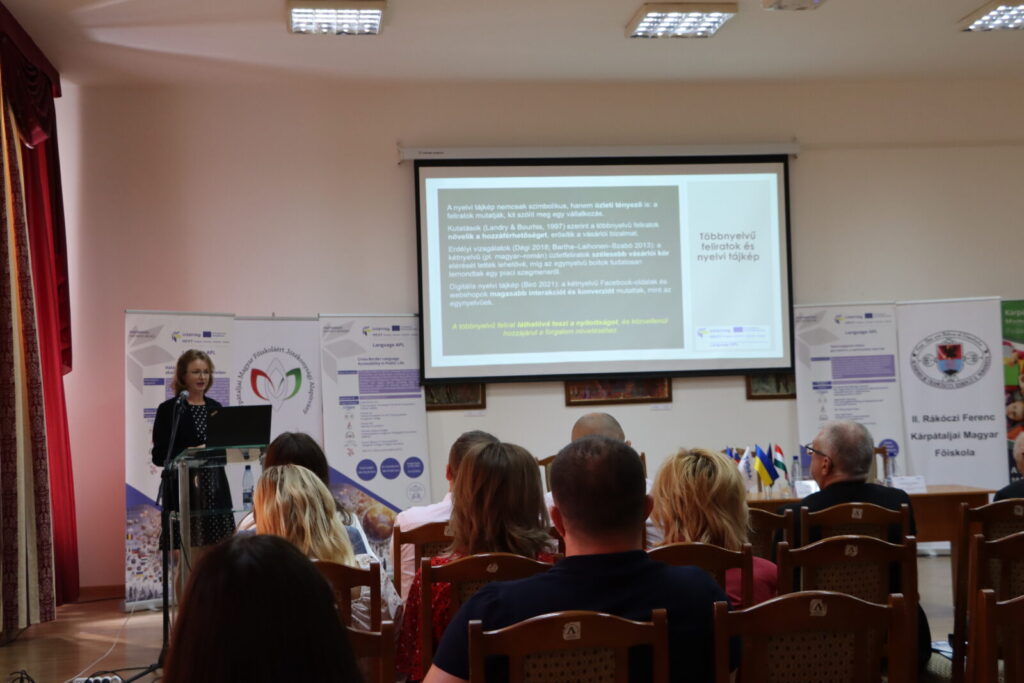
As Kornélia Híres-László, Head of the Research Centre, pointed out in her presentation:
“Our research shows that beyond legal frameworks, local decisions, institutional openness, and economic factors strongly influence the implementation of multilingualism.”
Her speech focused on the economic sphere and local businesses. She underlined:
“Bilingual signage and client services not only make life easier for minority communities but also provide a market advantage for service providers. Language accessibility, therefore, is also an investment.”
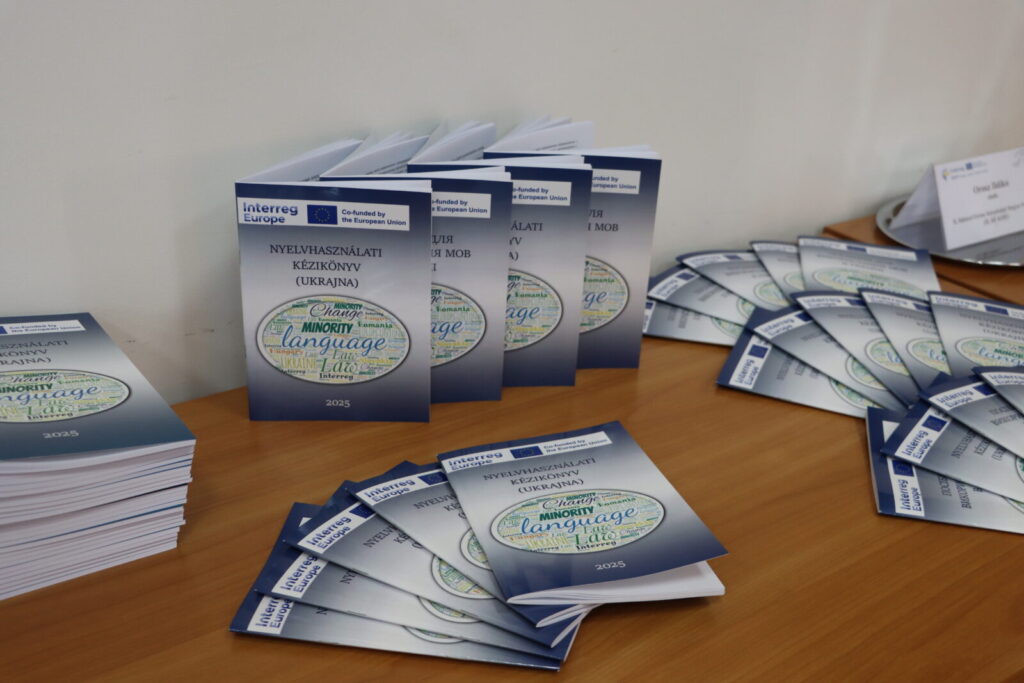
During the event, the Language Use Handbook (Ukraine) was presented. It serves as a practical guide for municipalities, public institutions, and economic actors. The handbook, developed with the involvement of the Research Centre, illustrates with numerous examples how the Hungarian language can be used lawfully and effectively in public life.
It was also highlighted that bilingualism brings tangible benefits to the service sector. For example, bilingual signs and information materials increase customer trust and strengthen the sense of community belonging among locals.
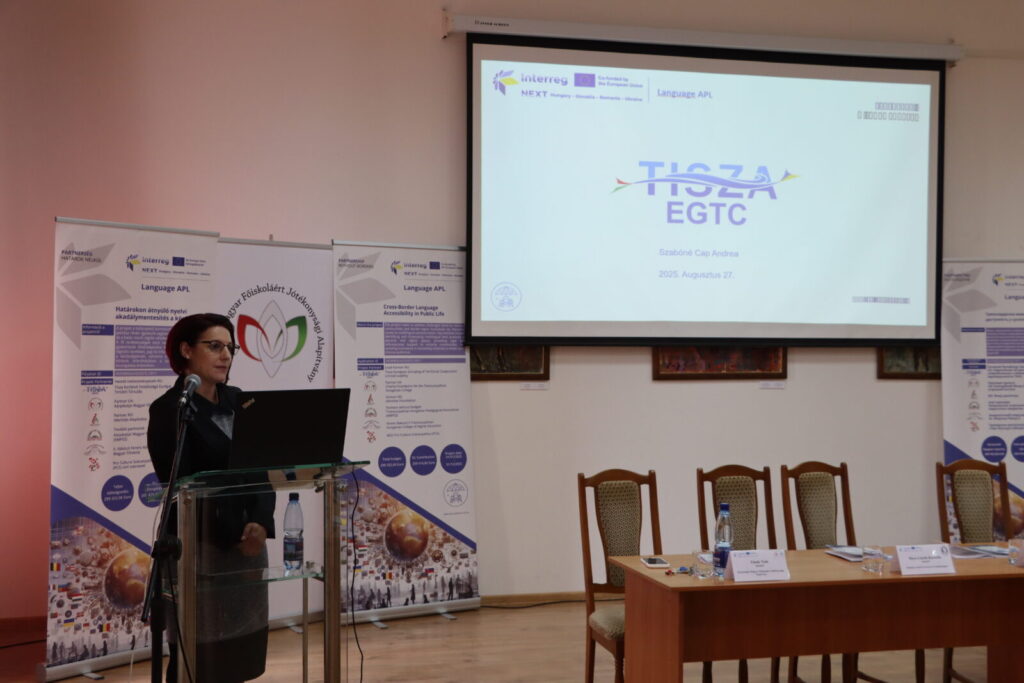
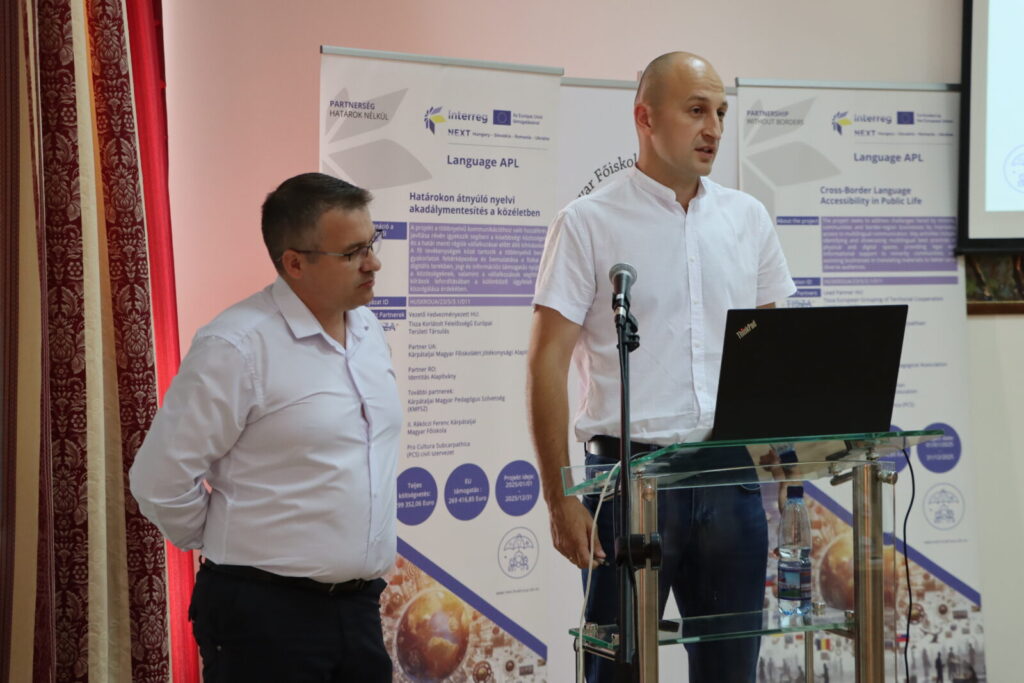
Anett Egri, representative of the Fundaţia Identitas Foundation from Romania, reported on the project’s Romanian aspects and progress, while György Balogh, Consul of the Consulate of Hungary in Berehove, delivered a short address.
This was followed by a lecture from Anatoly Vasilechko, a lawyer from Uzhhorod, who spoke about the role of interpreters in criminal and administrative proceedings. He stressed:
“The interpreter’s role as a mediator is crucial, because without it, clients’ legal security may be compromised. Guaranteeing the use of minority languages is a cornerstone of the rule of law.”
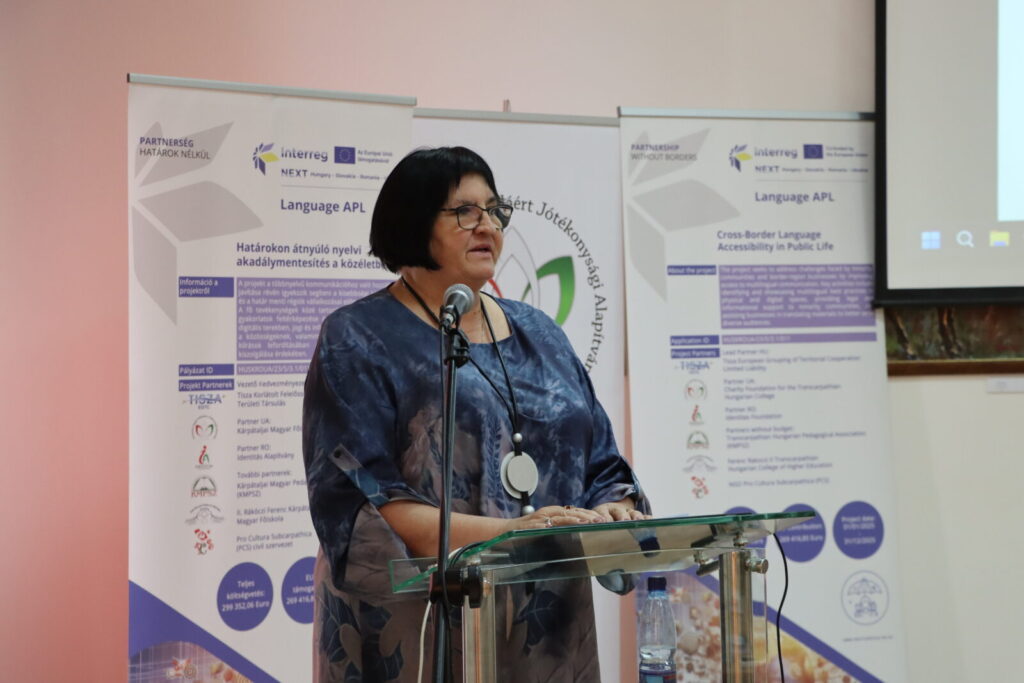
In her closing remarks, Ildikó Orosz, President of the College, stated:
“The law provides the opportunity to use minority languages, but these rights must also be exercised. This project encourages our communities to use linguistic rights more confidently and consciously, helping to dismantle the barriers that still exist between us.”
The Open Day made it clear that the Language APL project contributes not only to cross-border regional cooperation but also to democratic equality, as well as economic and social development. For the Antal Hodinka Research Centre for Linguistics, this serves as further motivation to continue its research in Transcarpathia and provide a solid scientific basis for language policy decisions.
